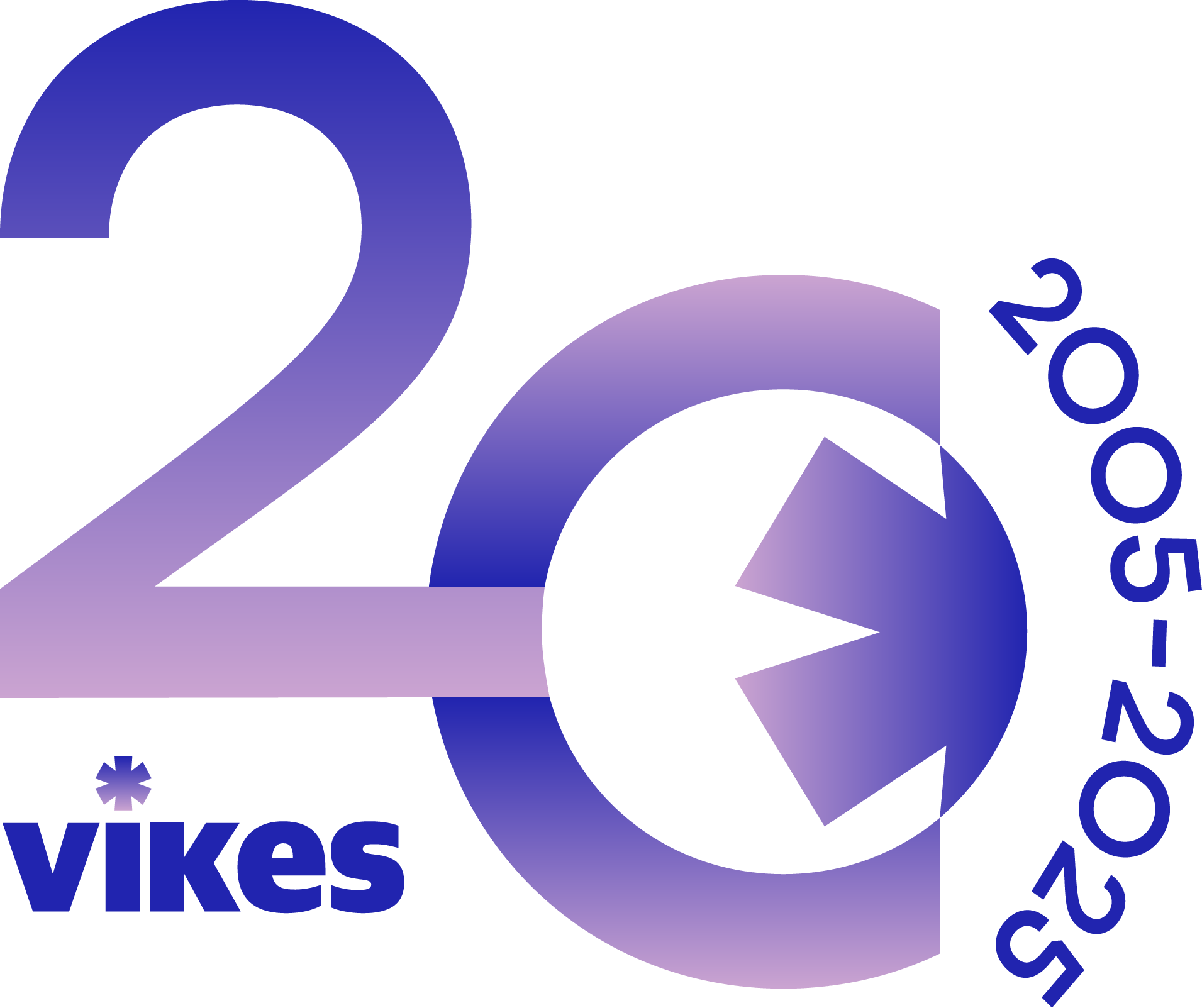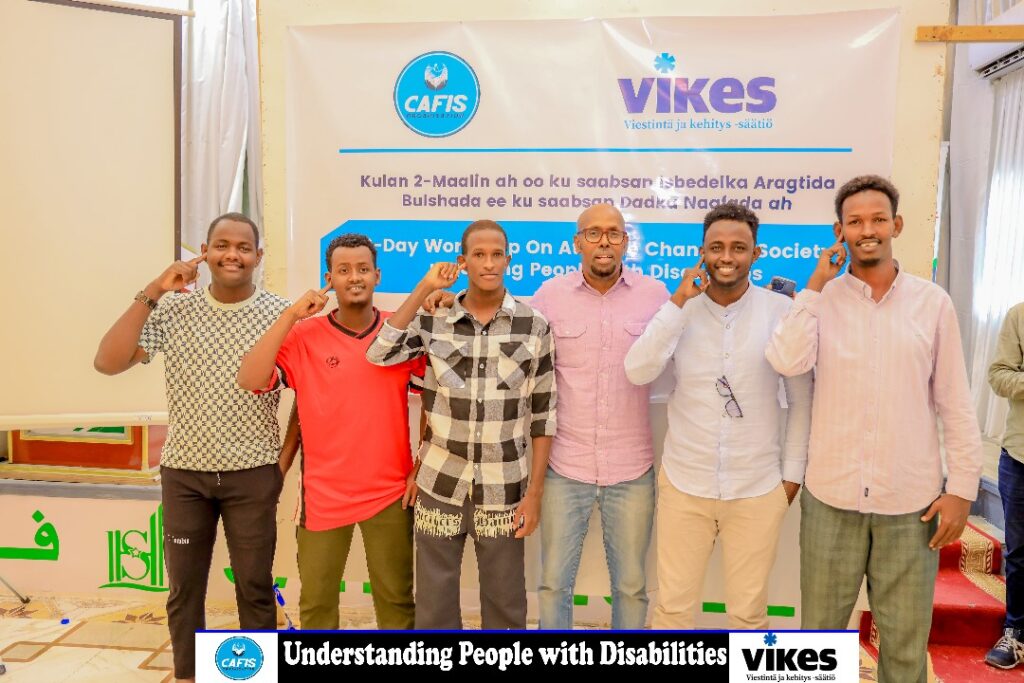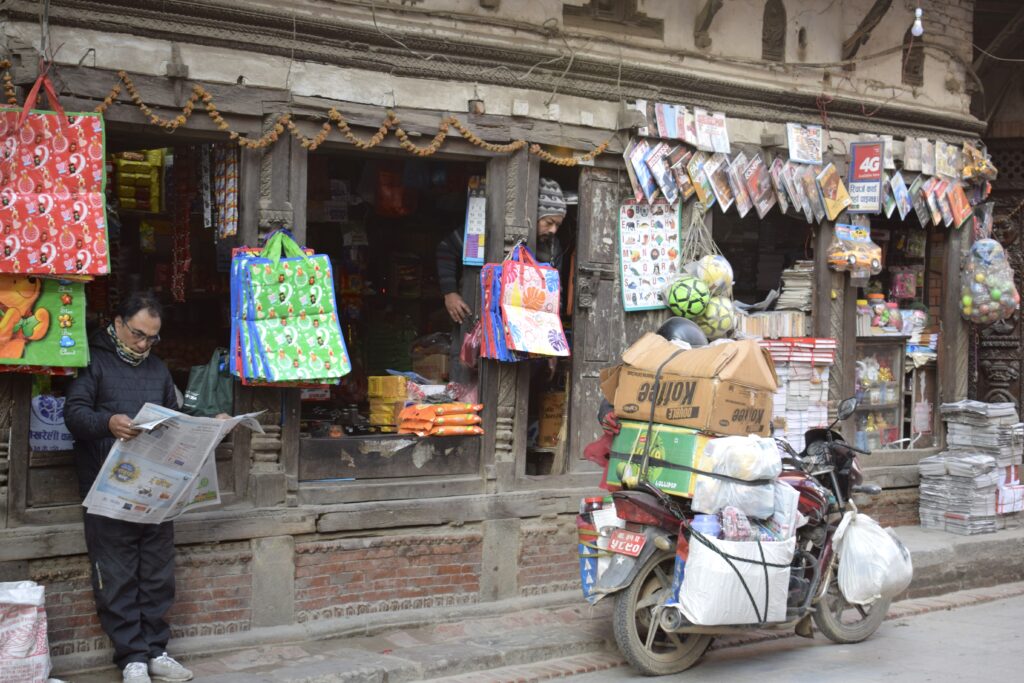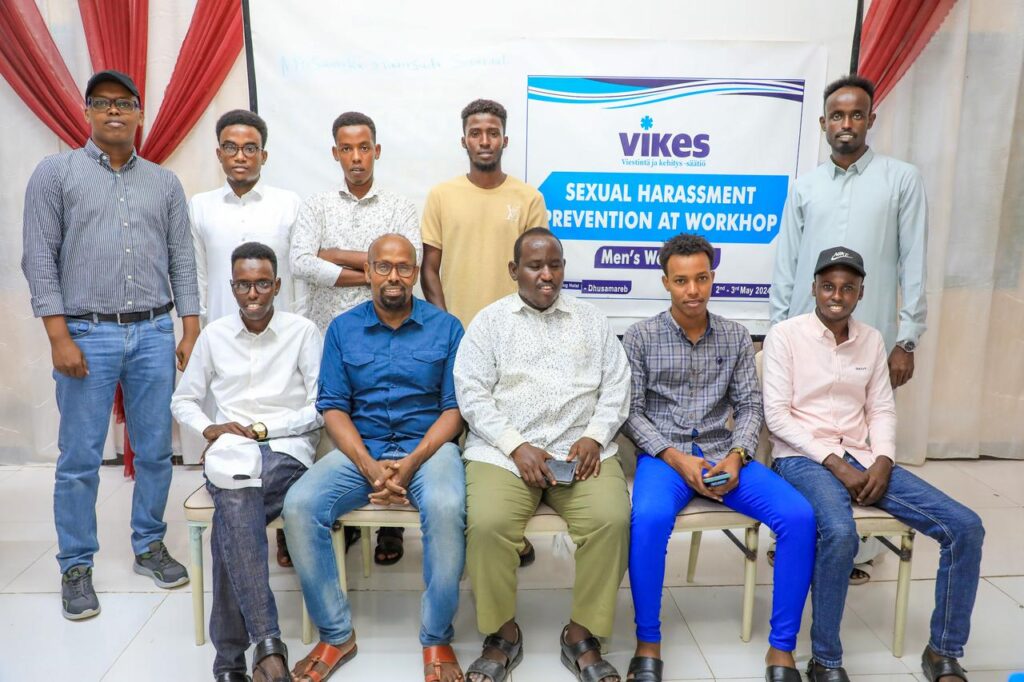In 2021, the Vikes Somalia project focused on supporting Fesoj’s trade union advocacy, security training with the police and the production of children’s programming for Somali National Television.
Photo: Somali Journalists’ UnionIn Somalia, Vikes has had two main partners: the Federation of Somali Journalists and the Somali National Television (SNTV).
In 2021, training sessions on freedom of expression, security and trade union rights were organised with Fesoj.
In 2021, a total of 145 journalists from all states of Somalia participated in Vikes-supported training in Somalia. 32% of trained journalists were women. Police officers have also participated in the security training. It is hoped that joint training between the media and the police will result in fewer journalists being arrested on the job.
During 2021, the most tangible results of advocacy were achieved in Somalia. A guide on journalists’ rights was published at the beginning of the year and distributed to members of Fesoj around the country. The guide has helped both journalists and media executives to become more aware of trade union rights.
The union actively campaigns for trade union rights together with journalists on around 30 radio and TV stations across Somalia. In each of them, two shop stewards, one woman and one man, have been elected to represent workers in negotiations with employers.
As a result of the campaign, most media houses have agreed to draw up written employment contracts with their employees, and most have started to grant paid maternity and sick leave. Pay has become more regular and working hours are better respected.
Children’s programmes a recent achievement
Another important partner for Vikes has been the Somali national broadcaster SNTV.
In 2021, the quality of SNTV’s programming for children and young people in particular was improved. Karin Berglund and Mira Myllyniemi, who worked as producers of Swedish-language children’s programmes at Yle, conducted three training sessions with SNTV’s children’s production team during the year.
A total of 15 journalists, producers and presenters from SNTV took part in the training sessions. The “New Generation” programme for children and young people has been well received. Children and young people themselves are the presenters and content providers, whereas in the past, the few children’s programmes in Somalia have been taught by adults.
Evaluation: the quality of SNTV has visibly improved
An evaluation of the Vikes EU project was carried out in 2021 and will also cover some of the achievements made with the support of the Ministry of Foreign Affairs. According to the report, TV production processes are now better and the quality of programmes is visibly better than before.
“The video and sound quality is now more professional, the news are shorter and has a wider range of topics,” the review said.
“The learning and encouragement provided by trainers is reflected in a passion for the work and a sense of pride in the profession.”
The year also saw the launch of a new TV channel, SNTV2, which will focus more on human interest stories, further expanding the range of topics on TV. In 2021, critical TV equipment was also replaced.
Cooperation continues as part of the programme
A long-term goal of Vikes and Somali National Television has been to develop SNTV into a public service media.
The country’s new media law says that this should be the case. Unfortunately, additional articles have been written into the law that are contrary to international standards of press freedom, and we cannot yet talk about public service media.
The current phase of the project, supported by the Ministry of Foreign Affairs, will end in 2022. All activities in Somalia in 2022 will be implemented with carry-over funds from previous years. Future work in Somalia will be funded by programme support from the Ministry of Foreign Affairs and an EU project under preparation.



